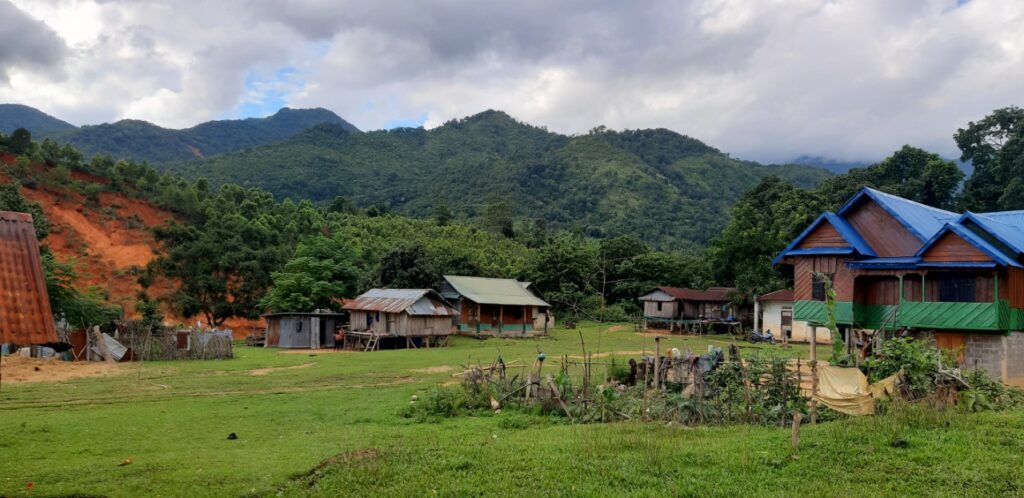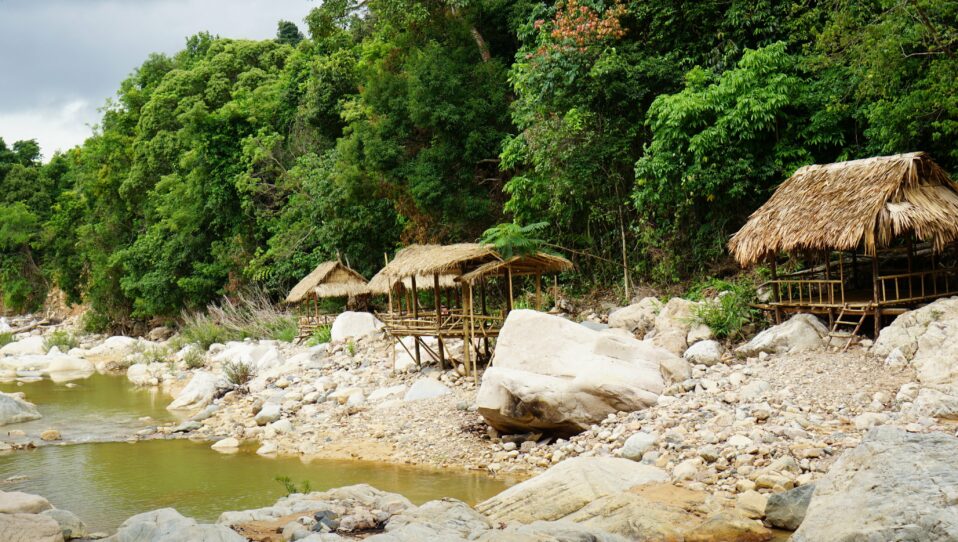Huong Hoa, a mountainous district of Quang Tri province is well-known for a chilling climate and magnificent natural landscapes. Since transport infrastructure is vastly improved, the locality has become a popular getaway destination for visitors in and out of the province.
According to Quang Tri provincial television, the idyllic beauty of waterfalls is a prominent feature that make Huong Hoa stand out. With the alluring view of cascading water, misty fresh air and the refreshing sensation of dipping in a natural plunge basin, a waterfall pleases multiple senses at the same time. Leaving behind the bustling urban life, trekking, swimming or going picnic at a waterfall site amidst the lush green nature seems to be a perfect choice for recreation.
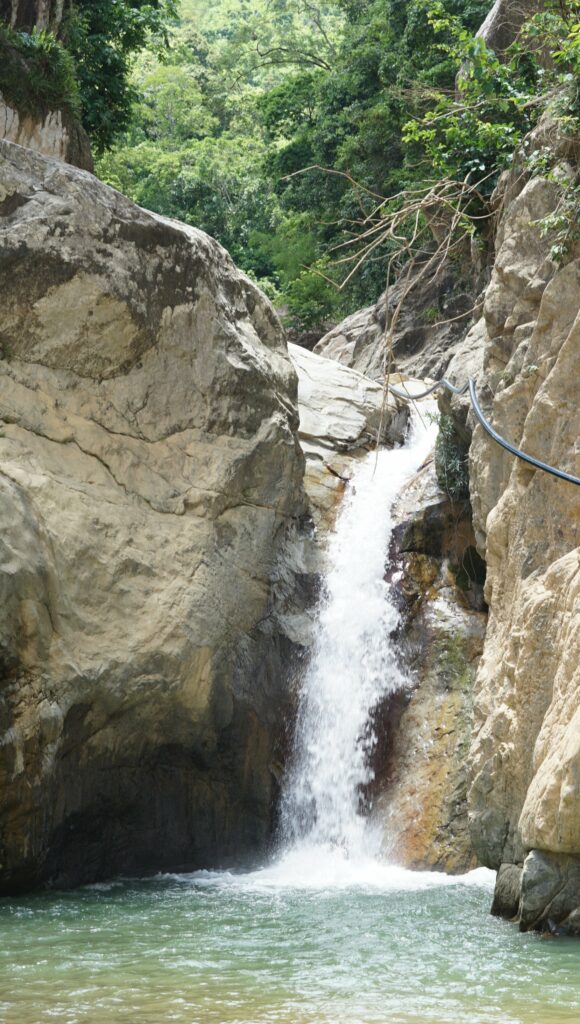
In a remote locality like Huong Hoa, the experience seems even more appealing since most of the waterfalls are left unmanaged, and therefore, no entrance or service fee is charged. Visitors can do whatever they like as long as they wish at a waterfall site. This factor, at the same time, also means the increase of safety risks, due to numerous seen and hidden hazards. Extra strong current and whirlpools, unseen logs and boulders, steep rock cliffs, any of them can easily lead to falling or drowning accidents, especially when people lack of vigilance and survival skills. Furthermore, due to the isolated location, the likelihood of getting immediate medical attention at a waterfall is very low.
In the last four years, at least two drowning deaths were recorded, at Chenh Venh waterfall (Chenh Venh village, Huong Phung commune), with the latest happened in May 2020. In addition to claiming lives, unmanaged tourism also puts the environment at risk, due to littering, improper smoking, irresponsible campfire, etc.
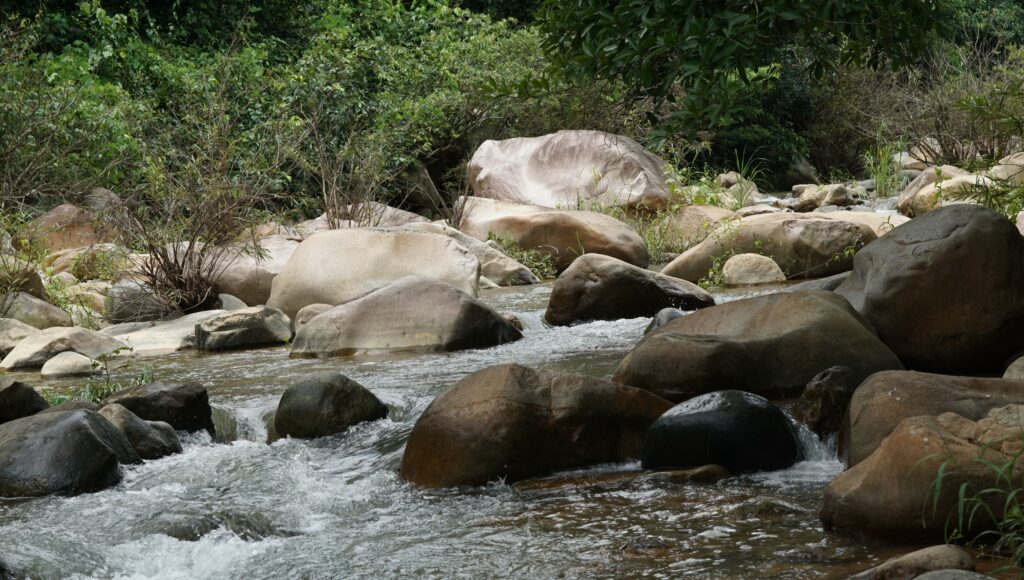
In order to unleash the potentials of natural and cultural resources in a sustainable way, the People’s Committee of Huong Hoa district has come up with a comprehensive plan on community-based tourism. Part of the plan is dedicated to turning local waterfalls into established tourism site.
As a long-standing partner of Quang Tri province and Huong Hoa district in particular, MCNV is joining the local authority in this initiative. The first step is turning Chenh Venh waterfall into an established tourism site and is implemented as part of the project “Promoting sustainable partnership between CSOs and enterprises for sustainable forest management in the context of climate change” (PROSPER), co- funded by the European Union.
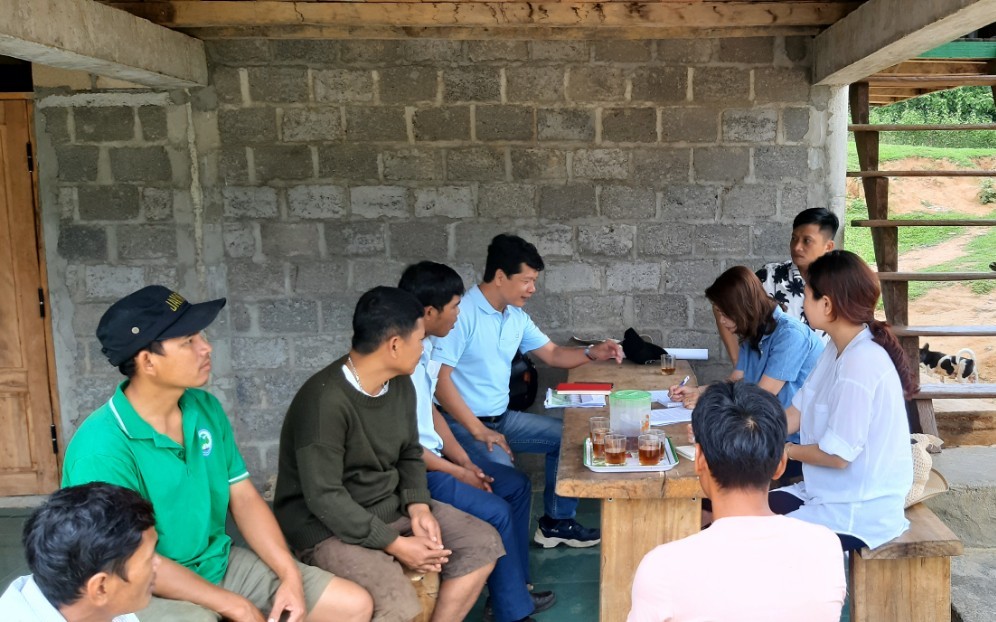
Currently, key infrastructure at Chenh Venh waterfall site has been completed, including upgrading staircases, installing information board, protective barriers, hazard signs, dust bins and building bamboo huts for tourists.
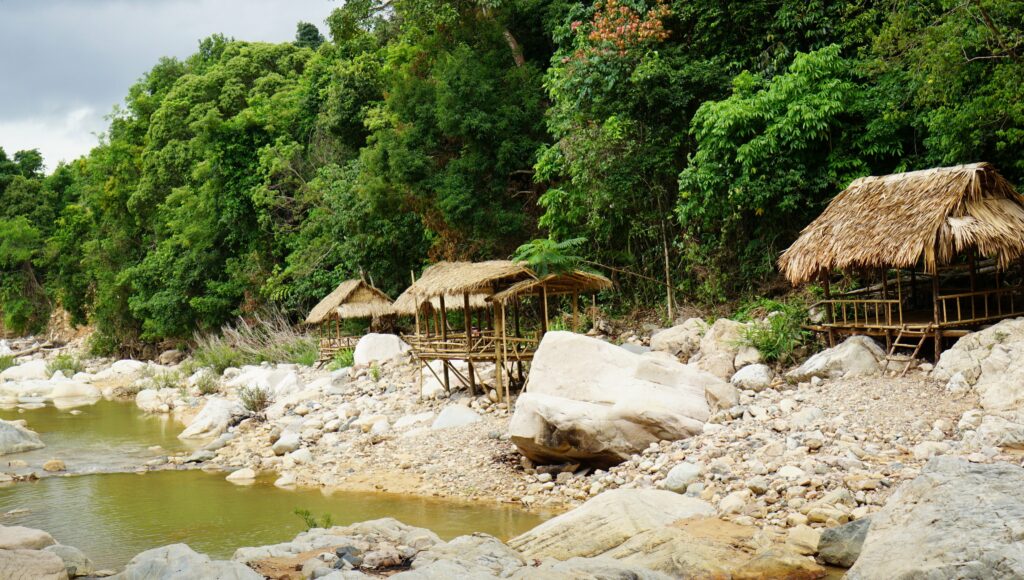
At the same time, a group of on-site tourism staff is established, with the majority recruited from the village’s forest protection team and the residents living close to the waterfall. The staff is tasked with collecting entrance fees, providing huts renting services, maintaining safety and sanitation at the site. Along with first aid packages and personal floatation devices, the staff has been equipped with basic first aid skills, thanks to a course joinly conducted by MCNV and local health centers.
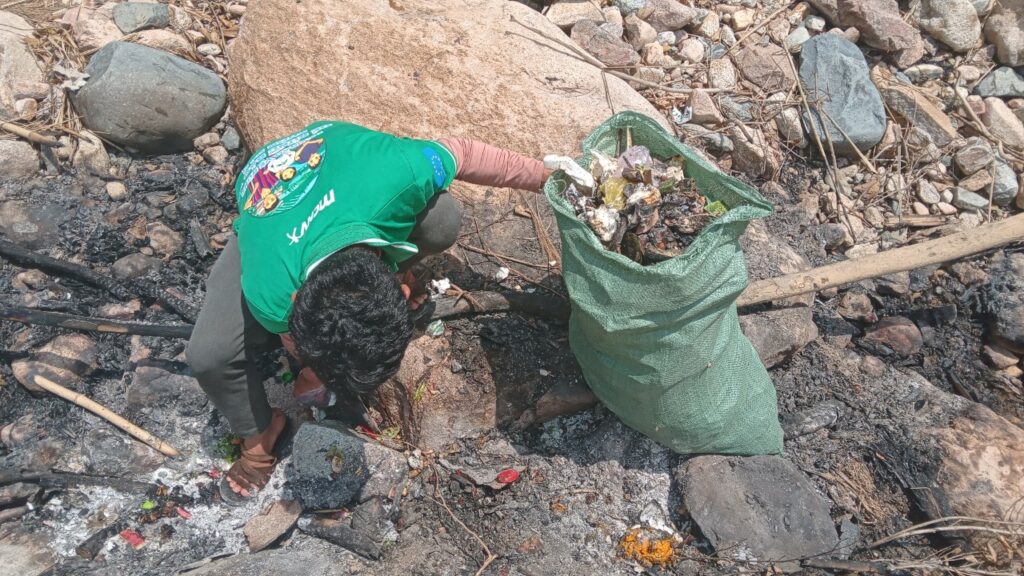
According to the management board of Chenh Venh waterfall site, during the recent national public holidays (from April 28th to May 1st), the total proceedings collected from entrance fees (VND 10,000/1 person) and hut renting fees (VND 120,000/hut) was VND 4 million – a relatively large amount to a remote mountainous village like Chenh Venh. Half of the proceeding was paid as wage for the staff, while the rest went toward Chenh Venh village’s Forest Protection Fund.
In the time to come, food and beverage stalls will be set up at the site to provide tourists with the fresh taste of local specialties. At the moment, MCNV is working on preparing the staff with requisite skills in tourism services, such as reception, tour guiding, food hygiene and safety, etc.
The initial outcome of Chenh Venh waterfall site transformation signals a promising future of a bigger project titled “Developing Chenh Venh ecotourism village” jointly implemented by MCNV and Huong Hoa district. The project is implemented based on the advantages possessed by Chenh Venh village in terms of climate, natural landscape, agriculture and geographical position.

Located on the Ho Chi Minh trail which connects Quang Tri with the world-heritage Phong Nha-Ke Bang cave, Chenh Venh village is where the authentic cultural identies of Van Kieu-Pa Co ethicity are well preserved, with tradional occupations like bamboo rattan handicraft, brocade weaving, straw liquor making.
With the sponsorship worths VND 650 million (~EUR 25,000) from MCNV, the project is implemented in the second half of 2021. From July to the end of year, MCNV will work together with local authorities, technical consultants and local residents to complete requisite features of a tourism village, including: rebuilding Bru-Van Kieu ethnic stilt-house, setting up specialties pavillion, constructing clean water system, upgrading vegetables, flowers gardens and livestocks shelters; renovating pavements, roads; etc.
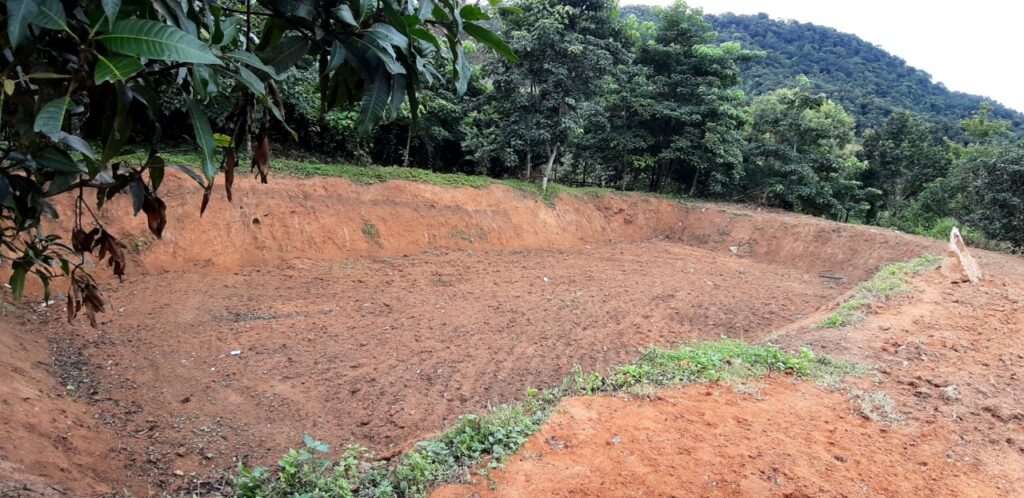
In addition to natural landscapes, Huong Hoa district is famous for numerous tourist attractions including Khe Sanh Victory Monument, Ta Con Airport, Sa Mu pass, etc. In 2019, the number of overseas visitors to Huong Hoa district was estimated at 14,000. Currently, due to the complication of COVID-19, the tourism industry in Vietnam and the world is temporarily ‘frozen’. In the future, when the pandemic is well controled, Chenh Venh ecotourism village is expected to contribute to the recovery of tourism in Central region in particular and Vietnam in general./.
